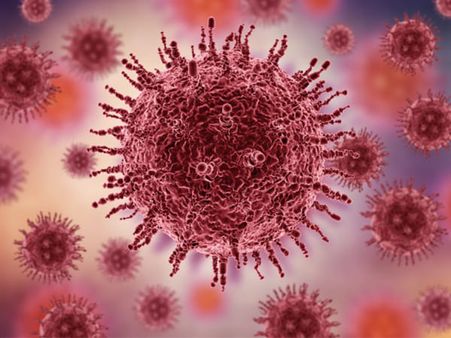Just In
- 8 min ago

- 50 min ago

- 1 hr ago

- 1 hr ago

Don't Miss
- News
 Calicut-Kuala Lumpur Flight: Check Date, Timings, Ticket Price For Flights Between Kerala-Malaysia
Calicut-Kuala Lumpur Flight: Check Date, Timings, Ticket Price For Flights Between Kerala-Malaysia - Education
 Kerala SSLC Results 2024: How and Where to Check the Results
Kerala SSLC Results 2024: How and Where to Check the Results - Automobiles
 Brixton Motorcycles to Revolutionize Indian Two-Wheeler Scene with Market Entry
Brixton Motorcycles to Revolutionize Indian Two-Wheeler Scene with Market Entry - Movies
 MET Gala 2024: WHO Will Host The Exclusive Fashion Event THIS Year?
MET Gala 2024: WHO Will Host The Exclusive Fashion Event THIS Year? - Technology
 Here’s a List of Smartphones That Are Most Likely to Feature Qualcomm Snapdragon 8 Gen 4
Here’s a List of Smartphones That Are Most Likely to Feature Qualcomm Snapdragon 8 Gen 4 - Sports
 IPL 2024: No Place For Sanju Samson in Irfan Pathan's 15-Member Indian T20 World Cup Squad
IPL 2024: No Place For Sanju Samson in Irfan Pathan's 15-Member Indian T20 World Cup Squad - Finance
 Okay Play India Posts 12.79% Revenue Growth In Q4 After 1:10 Stock Split Approval
Okay Play India Posts 12.79% Revenue Growth In Q4 After 1:10 Stock Split Approval - Travel
 Fly in Luxury: 10 Ways to Get Free Flight Upgrades
Fly in Luxury: 10 Ways to Get Free Flight Upgrades
Hantavirus: What Are The Symptoms? How Does It Spread? Everything You Need To Know
As the world is caught between the outbreak of the coronavirus pandemic, cases of swine flu and bird flu have already been reported in India and other countries. At a cataclysmic time like this, comes the report of a man from China has tested positive for hantavirus.

The man, who tested positive for hantavirus died while on his way to work on 24 March, Monday. Authorities have tested the 32 passengers in the bus [1].

What Is Hantavirus?
According to the CDC (Centers for Disease Control and Prevention), hantaviruses are a family of viruses that are mainly spread by rodents [2]. These viruses can cause several disease syndromes in people. It can cause hantavirus pulmonary syndrome (HPS) and haemorrhagic fever with renal syndrome (HFRS).
CDC points out that the disease is not airborne and can spread to people only when one comes in contact with the urine, faeces, and saliva of rodents; and in rare cases, a bite from an infected host.
In the Americas, hantaviruses are known as "New World" hantaviruses and may cause hantavirus pulmonary syndrome and in Europe and Asia, it is known by the name "Old World" hantaviruses that may cause hemorrhagic fever with renal syndrome.

What Are The Symptoms Of Hantavirus?
As the reported number of hantavirus cases are less, the incubation time of the diseases is not clearly known. However, on the basis of limited information, CDC asserts that the symptoms may develop between 1 and 8 weeks after exposure to fresh urine, droppings, or saliva of infected rodents. HPS cannot be passed on from person to person, while HFRS transmission between people is extremely rare.
Early symptoms of hantavirus
- Fatigue
- Fever
- Headaches
- Dizziness
- Chills
- Abdominal problems, such as nausea, vomiting, diarrhoea, and abdominal pain, and
- Muscle aches, especially in the large muscle groups-thighs, hips, back, and sometimes shoulders.
- Coughing
- Shortness of breath
- A tight sensation in the chest
Late symptoms of hantavirus
From four to 10 days after the initial phase of illness, the late symptoms of the disease will appear, which includes the following:
Hantavirus has a mortality rate of 38 per cent. The initial symptoms of both HFRS and HPS remain the same but HFRS can further lead to low blood pressure, acute shock, vascular leakage, and acute kidney failure.

What Is The Incubation Period For Hantavirus?
According to the CDC, in North America, the incubation period (time from initial exposure to the virus and development of the first symptoms) is between one to five weeks after initial exposure to infected rodent urine, droppings, or saliva.

How Is Hantavirus Diagnosed?
In more clarity, both HFRS and HPS are diagnosed differently:
Diagnosis of HFRS: Several laboratory tests (blood test, basic metabolic panels etc.) are used to confirm a diagnosis of hantavirus in patients with a clinical history compatible with the disease.
Diagnosis of HPS: If the individual is in the initial stages of the disease, it can be difficult because early symptoms such as fever, muscle aches, and fatigue are easily confused with influenza. But, if the person experiences symptoms such as fever and muscle ache along with that of history of rodent exposure along with shortness of breath, it could indicate hantavirus disease.

What Is the Treatment For Hantavirus?
Currently, there is no specific treatment, cure, or vaccine for hantavirus infection. However, CDC points out that if the infected individuals are recognized early and receive medical care in an intensive care unit, chances of betterment is high. In ICU, infected individuals are intubated and given oxygen therapy to manage severe respiratory distress. The earlier the patient is brought in to intensive care, the better.
In addition to this, for individuals with HFRS, supportive therapy includes careful management of the patient's fluid (hydration) and electrolyte (e.g., sodium, potassium, chloride) levels, maintenance of correct oxygen and blood pressure levels, and appropriate treatment of any secondary infections. If severe fluid retention is reported, dialysis will be required.

Can You Prevent Hantavirus?
Rodent control is the primary strategy for preventing hantavirus infections.
The following steps should be considered to help keep hantavirus at bay:
- Stay away from places where rodents leave droppings.
- Seal holes in and around your home.
- Avoid leaving food out in your home.
- If exposed to rodent droppings, wear rubber gloves and a mask that covers your nose and face.
- Use disinfectant to sanitize areas containing mouse faeces.
- Before entering places that have rodents, air out the area.

Frequently Asked Questions
Q. Can you survive hantavirus?
A. About 4 out of 10 patients with hantavirus (HPS) do not survive their illness. However, patients who recover usually do so rapidly.
Q. How dangerous is hantavirus?
A. Hantavirus Pulmonary Syndrome (HPS) is a severe, sometimes fatal, respiratory disease in humans caused by infection with hantaviruses.
Q. How easy is it to get hantavirus?
A. Most people get it by inhaling dust contaminated by rodent droppings or by touching rodent urine and then touching their mouth, eyes, or nose. Getting infected is easier than it might seem. Even healthy people who inhale hantavirus can get a fatal infection.
Q. Can hantavirus spread from person to person?
A. No. Hantavirus cannot spread from person to person.
Q. Is there a test for hantavirus?
A. Currently, there are no readily available tests to diagnose HPS or even hantavirus infection in the early stage of the infection or disease mainly because the early symptoms are so nonspecific and the disease of HPS so infrequent.
Q. Can hantavirus be mild?
A. Hantavirus infection can have no symptoms or cause mild to severe illness.
Q. How long is hantavirus active in droppings?
A. The virus does not remain active for long once outside of its host -- less than 1 week outdoors and a few hours when exposed to direct sunlight.
Q. Is the hantavirus airborne?
A. Hantaviruses can become airborne, or aerosolized in tiny particles, and can then be inhaled, according to the World Health Organization (WHO).
Q. Do all mice carry the hantavirus?
A. Only some kinds of mice and rats can give people hantaviruses that can cause HPS. House mice, roof rats, and Norway rats have never been known to give people HPS.
Q. Is hantavirus contagious?
A. Hantavirus is not contagious from person to person. The virus spreads from rodents to humans.
Q. What are the complications of hantavirus?
A. The major complication is death from respiratory failure. Those who survive may take a few weeks to recover fully.
Q. How deadly is the hantavirus?
A. HPS is fatal with a mortality rate of 38% and it can take 1-5 weeks to present symptoms.

-
 wellnessBangalore: Zika Virus Found In Mosquito; Karnataka Health Dept Issues Advisory, Prevention Tips
wellnessBangalore: Zika Virus Found In Mosquito; Karnataka Health Dept Issues Advisory, Prevention Tips -
 healthNipah Virus Outbreak In Kerala: Should You Cut Down Fruit Trees At Home? Which Fruit Trees Are Risky?
healthNipah Virus Outbreak In Kerala: Should You Cut Down Fruit Trees At Home? Which Fruit Trees Are Risky? -
 healthHow To Know If You Have Eye Flu? Steps To Look For Signs
healthHow To Know If You Have Eye Flu? Steps To Look For Signs -
 healthMyths vs Facts: You Must Bathe After Attending A Funeral
healthMyths vs Facts: You Must Bathe After Attending A Funeral -
 pregnancy parentingExclusive: How To Know About Zika Virus Risks In Pregnancy And What Can Lead To Miscarriage
pregnancy parentingExclusive: How To Know About Zika Virus Risks In Pregnancy And What Can Lead To Miscarriage -
 wellnessExclusive: Influenza Vaccination Week 2022: Expert Explains What It Is About And Which Vaccine To Prefer
wellnessExclusive: Influenza Vaccination Week 2022: Expert Explains What It Is About And Which Vaccine To Prefer -
 pulseWhat Now! Scientists Uncover A 48,500-year-old Pandoravirus Buried In Ice
pulseWhat Now! Scientists Uncover A 48,500-year-old Pandoravirus Buried In Ice -
 wellnessCan Washing Clothes Eliminate Monkeypox? Steps To Get Rid Of The Monkeypox Virus Through Laundry
wellnessCan Washing Clothes Eliminate Monkeypox? Steps To Get Rid Of The Monkeypox Virus Through Laundry -
 wellnessMonkeypox: Kerala Steps Up Vigil, Issues Special Alerts To Five Districts
wellnessMonkeypox: Kerala Steps Up Vigil, Issues Special Alerts To Five Districts -
 disorders cureNew Study Signals The Development Of Unique Genetic Treatment For HIV
disorders cureNew Study Signals The Development Of Unique Genetic Treatment For HIV -
 wellnessMonkeypox Virus Case Confirmed In UK After Nigeria Travel Link
wellnessMonkeypox Virus Case Confirmed In UK After Nigeria Travel Link -
 disorders cureWhat Is Marburg Virus Disease? Everything You Need To Know
disorders cureWhat Is Marburg Virus Disease? Everything You Need To Know


 Click it and Unblock the Notifications
Click it and Unblock the Notifications



